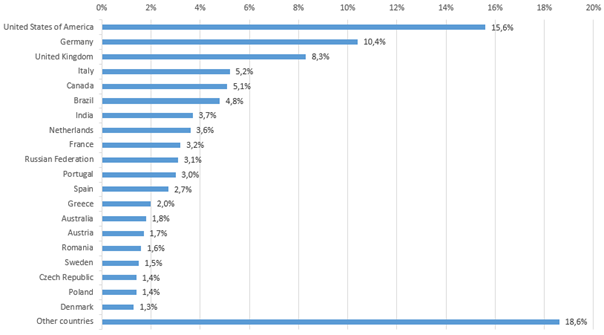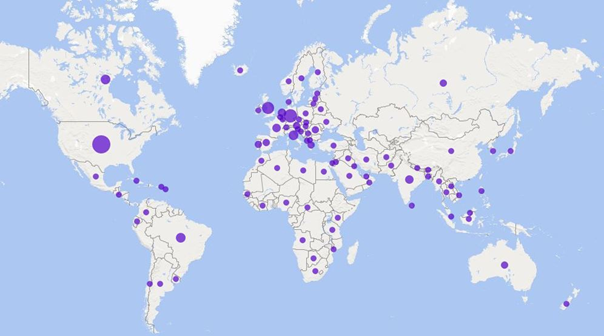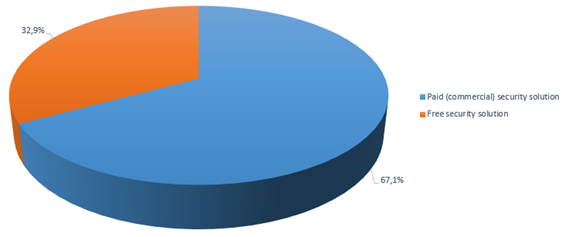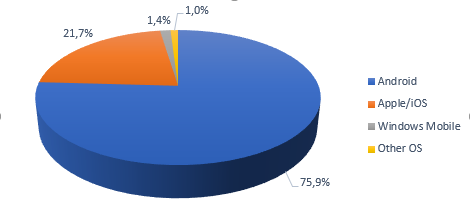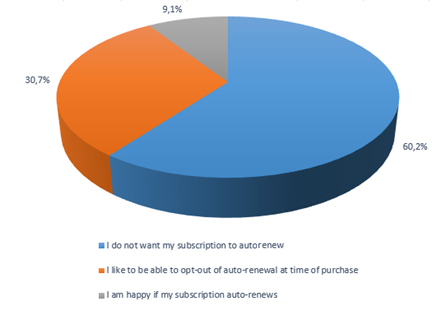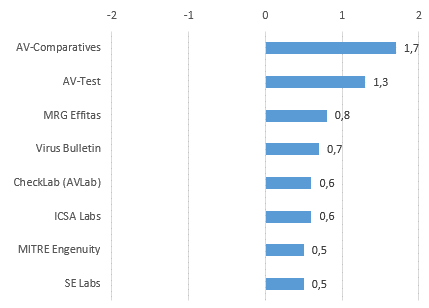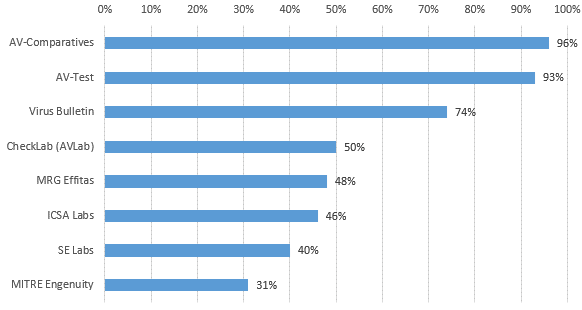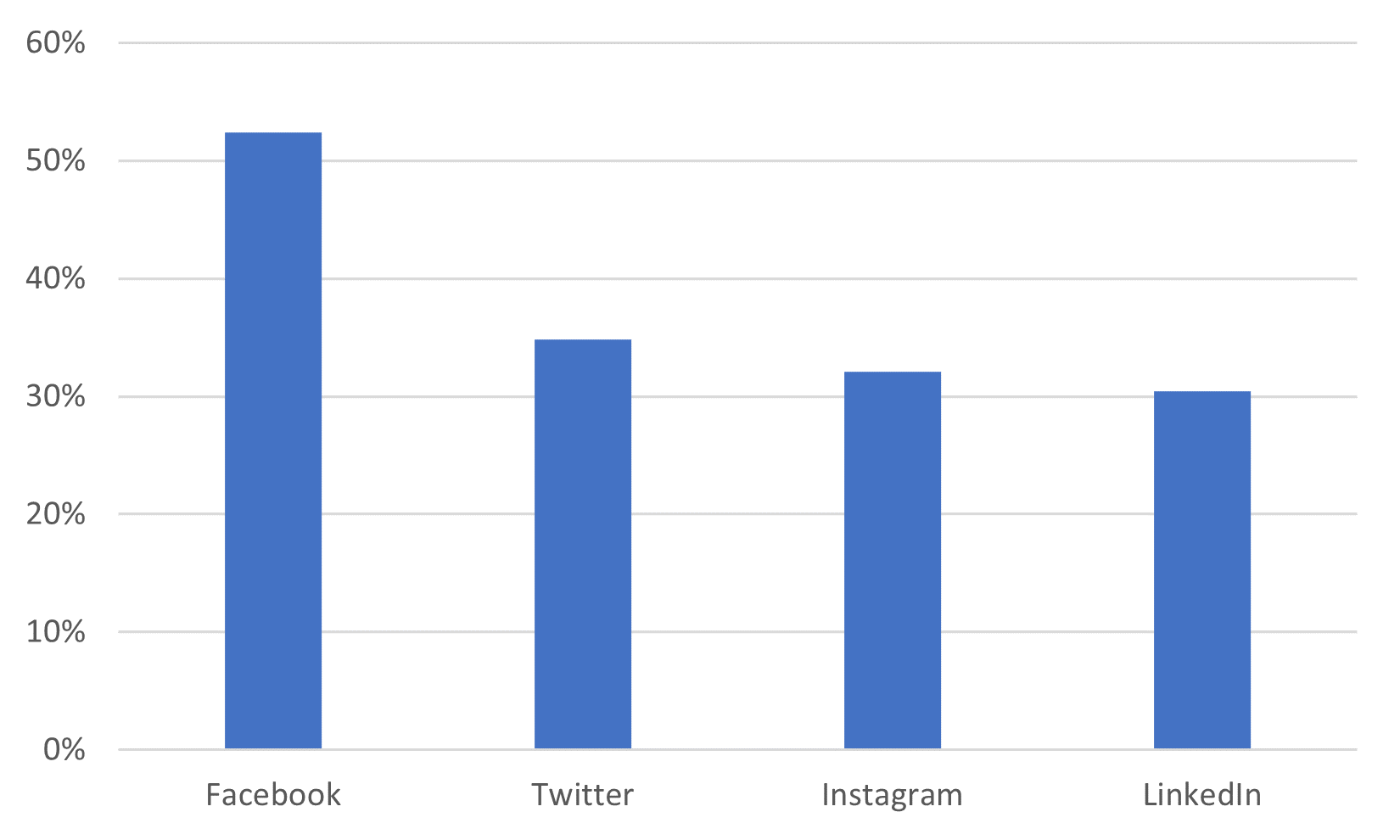We have conducted our annual survey, which helps us to improve our service to the end-user community. Respondents were asked for their opinions on various topics related to anti-virus software testing and anti-virus software in general. We would like to thank everyone who took the time to complete the survey. This survey can be downloaded as PDF from here.
IT Security Survey 2021
Survey Period: 11th December 2020 – 30th December 2020
Valid responses of real users: 2,111
The survey ran for about two weeks. It contained various control questions and checks, which helped us to identify and remove invalid responses. Whilst there was a raffle conducted this year, with a gift box as a prize, this only became clear once a participant had completed the survey. This was done to avoid people submitting meaningless answers simply to try to win a prize.
The survey results are invaluable to us. This report contains the results of the survey questions.
Overview
In 2020, restrictions on personal movement to counteract the spread of COVID-19 led to unprecedented use of the Internet. Millions of people worked from home rather than in an office, and millions more arranged virtual social meetings using platforms like Skype and Zoom. Whilst tablets and smartphones remained as popular as before, ZDNet reported a 28.3% rise in laptop sales relative to the previous year. This makes security software for desktop operating systems more important than ever, as cybercriminals attempt to exploit the new situation.
This annual survey of computer users worldwide also focuses on which security products (free and paid), operating systems and browsers are most widely used.
Report results are based on the Internet survey run by AV-Comparatives between 11th December 2020 and 30th December 2020. A total of 2,111 computer users from around the world answered the questions on the subject of computers and security.
Key Results
Please note that all the points made below refer only to our survey participants, not the general public.
- The number of respondents using Windows 10 has risen again this year, leaving Windows 7 with only a twentieth of users.
- Android remains by far the most popular mobile operating system, being used by just over three quarters of respondents. iOS is the only other mobile OS to reach double figures, at about 22%.
- Google Chrome is still the most popular browser, with over a third of respondents (35.7%) using it. However, this figure has fallen from about 50% last year. Mozilla Firefox now runs Chrome very close, also having a share of more than a third (34.1%). Microsoft Edge, which is now Chromium based, has risen significantly to a share of 15.6%.
- Kaspersky, Bitdefender, Microsoft and ESET (in that order) are the four most popular desktop security products worldwide, and feature in the top five products on every continent.
- Bitdefender is the most popular mobile security solution overall and on each of the four continents with significant results. Bitdefender, Kaspersky and ESET are the only three mobile AV apps found in the top five on every continent.
- The most major reason for users wanting to change their security product is not the software itself, but the marketing practices of the respective vendor (such as upselling and high renewal prices).
- Some of the test labs we asked users about were much better known than others, with 96% having heard of AV-Comparatives. As regards user confidence, once again we are delighted to be voted the most trustworthy and reliable among the testing labs, and we would like to thank respondents for their confidence in AV-Comparatives.
We are grateful to everyone who completed the survey. The feedback we have gained will be used to ensure that our tests continue to grow in effectiveness and relevance. This enables manufacturers to further improve their products, benefitting both themselves and their users. We are very pleased to see our test results being quoted by other publications in their reviews of AV and Internet Security products! All AV-Comparatives’ public test results are available to everyone free of charge at www.av-comparatives.org
Age distribution by continent is shown below. Asia had the youngest respondents, with about 58% being younger than 35. North America had the oldest respondents, with over 55% of them being older than 55 years. South America had about 53% in the 25 to 44 age groups, and Europe had about 51% aged between 35 and 54.
About two thirds of users pay for a security solution. In South America, the number of respondents using a free security solution is about 50%. Free solutions are tendentially used more by the younger generation (17-24) to about 40%, while of the older generation (above 55), only about 24% use free versions.
The most widely used operating system amongst respondents is Windows 10, accounting for over 83% of the total OS usage. Windows XP and Vista are now defunct and hardly used anymore. Windows 7 usage has also dropped to about one in twenty participants, which is significantly lower than for the general public. It may be that our survey respondents are conscious of security risks in unsupported operating systems, which could explain the difference. Over 6% of respondents now use macOS, making it the second most popular operating system. In North America, Apple’s macOS is more commonly used than in the rest of the world, with about 10% market share. Our review/test of Mac security products is available at https://www.av-comparatives.org/consumer/testmethod/mac-security-reviews/
A list of Mac security products can be found here: https://www.av-comparatives.org/list-of-av-vendors-mac/
As shown in the diagram, Google Chrome is still (just) the most popular browser amongst survey participants worldwide, with 35.7% of respondents using it. In second place is Mozilla Firefox (33.8%). Microsoft Edge (which is now Chromium-based) reached third place with 15.6%, apparently at the expense of Google Chrome.
The number of Mozilla Firefox users in our survey appears to be higher than the general average. It may be that our survey participants are more aware of privacy issues than the average user, which would explain this difference. We would encourage AV vendors who use browser plug-ins for their URL-blocking features to make these work for as many browsers as possible, not just the most popular ones.
Android is the most popular mobile OS among our survey participants, accounting for over 75% of users worldwide. In North America, iOS is more popular than in other regions, accounting for about 35%. In Asia and South America, most users (over 80%) use Android. Our Mobile (Android) security review/test report is available at https://www.av-comparatives.org/consumer/testmethod/mobile-security-reviews/
An overview of security products for Android can be found here: https://www.av-comparatives.org/list-of-mobile-security-vendors-android/
39.3% of respondents overall do not use any security solution on their mobile phones.
Worldwide, the ten most commonly used manufacturers of mobile security products are, in decreasing order: Bitdefender, Kaspersky, ESET, Avast, NortonLifeLock, McAfee, AVG, Sophos, F-Secure and Avira.
The list below shows the 10 most popular mobile security manufacturers used by survey participants, according to continent. There were not enough responses from some regions to produce significant results. Therefore, Australia/Oceania and Africa are not shown.
| Europe | North America | Asia | South/Central America |
|
|
|
|
Bitdefender was the most popular mobile security product in all 4 regions. ESET and Kaspersky were in the top five on all four continents with significant results, while Avast made the top five in three out of four of these continents.
Major products for mobiles were reviewed by AV-Comparatives in a report in 2020. It is located at https://www.av-comparatives.org/consumer/testmethod/mobile-security-reviews/
Worldwide, the twelve manufacturers of anti-malware products for Windows platforms most commonly used by survey participants are (in this order): Kaspersky, Bitdefender, Microsoft, ESET, Avast, NortonLifeLock, F-Secure, Avira, McAfee, Malwarebytes, Panda and Trend Micro.
On all 4 continents with significant results, the same 4 vendors can be found in the top 5 places. These are (alphabetically): Bitdefender, ESET, Kaspersky and Microsoft.
Differences between continents
The table below shows the twelve products most commonly used by survey participants, by continent:
| Europe | North America | Asia | South/Central America |
|
|
|
|
Below are the 15 most-requested consumer/home-user products:
- Kaspersky
- Bitdefender
- ESET
- Microsoft
- NortonLifeLock
- Avast
- Avira
- Malwarebytes
- F-Secure
- McAfee
- Trend Micro
- AVG
- Panda
- G Data
- Sophos
Below are the 20 most-requested business/enterprise products:
- Kaspersky
- Bitdefender
- Microsoft
- ESET
- McAfee
- Symantec (Broadcom)
- Sophos
- Avast
- Trend Micro
- Malwarebytes
- Cisco
- G Data
- Fortinet
- Panda (WatchGuard)
- CrowdStrike
- FireEye
- VMware CarbonBlack
- Palo Alto Networks
- Cybereason
- Vipre
Most of the popular vendors are usually included in at least some of our public tests and reviews, while most of the other vendors commission separate tests and/or participate privately in certain tests.
84.2% of the survey participants are satisfied or very satisfied with their current security solution.
Among the unsatisfied users who are considering changing their solution, the 5 top reasons given for this were (in the following order): vendor’s marketing practices (high renewal price and/or upselling tactics); dissatisfaction with the vendor’s support; the usability (too complicated to use or insufficient configuration options); program malfunctions (false alarms / bugs); the impact on performance. Of these complaints, vendor marketing practices were by a long way the most common.
Only 9.1% of respondents actually wanted auto-renewal when they buy security software. 60.2% did not want their subscription to auto-renew, while 30.7% found it acceptable for vendors to offer auto-renewal as long as it was optional at the time of purchase. In combination with the results of the previous question, the following conclusion may be drawn: of the users who are intending to change their current product, many are not unhappy with the product itself, but would not choose to buy it again due to the vendor’s marketing practices.
Users had to rate various security product testing labs and institutes by giving a score from -2 to +2, where +2 meant reliable/trustworthy and -2 unreliable/biased. Note that not all respondents were aware of all the labs, so each lab was only rated by those who were aware of it. For more information, please see the next page. Labs which were unknown to over 75% of all respondents are not listed.
Only AV-Comparatives and AV-Test reached a score higher than 1. We hope that our high rating is down to the carefully prepared methodology of our tests, meaningful number of samples, transparency, and freely available test reports, which describe the tests in detail. Our willingness to allow other publications to cite our results (subject to proper attribution) also increases our visibility.
Interestingly, AV vendors tended to rate all labs lower than normal the users do, by about 0.3 points) (please note that there was a question in the survey to distinguish between respondents who are connected to AV vendors and those who are just regular users). There was one exception: MITRE was rated 0.2 points higher by AV vendors than by users.
For products that are not tested by us, we recommend our readers to look at the tests done by other well-known testing labs or at least certification bodies. For a list of some other testing labs, go to http://www.av-comparatives.org/list-of-av-testing-labs/
Which are the best-known AV testing labs?
We asked which testing labs were known to the survey participants. Obviously, anybody who has seen our website, newsletter or social media accounts will be aware of AV-Comparatives. Consequently, for AV-Comparatives we tried to remove the survey responses that came directly from our website, our newsletter and our social media accounts, in order to create a level playing field. Testers that were unknown by over 75% all survey participants have been removed from the results shown below. NSS Labs is also no longer included in the list, as the lab ceased operations in 2020. West Coast Labs is also no longer listed, as there have been no updates on their website since 2015.
Below you can see the percentages of participants that have heard of the respective labs:
AV-Comparatives, AV-Test and Virus Bulletin are the best-known labs overall, and in each of the 4 regions.
The table below ranks the testing labs based on how well they are known on each continent:
| Europe | North America | Asia | South/Central America |
|
|
|
|
Please note that not all the testing labs have the same testing focus. That is to say, some may test only business products, others only consumer products; some may only provide certification (i.e. simply verify that products reach a certain minimum level, without providing comparative data); some may limit their tests to products from a particular country or region, or in a certain language.
According to the survey, over 50% of users use Facebook. Twitter, Instagram and LinkedIn are used by about 1 in 3. Telegram, Discord, TikTok and VK are used by less then 15% of the survey participants.
AV-Comparatives has accounts on all of these social media platforms, which can be found here:
Facebook: https://www.facebook.com/AVComparatives/
Twitter: https://twitter.com/AV_Comparatives
Instagram: https://www.instagram.com/avcomparatives/
LinkedIn: https://www.linkedin.com/company/217284/
This year, we ran a prize raffle, open to anyone who completed the survey and followed us on any of the social media platforms above. 25 lucky winners will be receiving a little gift basket, including the following: anon, arakimk, avas_goreny, *****, dfontes27, *****, *****, Gandalf_T_G, Kaos1337, KarbowskiMarcin, Lordkimbold, *****, Martinusv2, *****, nico_be_rocky, osmandemi23, *****, *****, ReelMcCoy, *****, super_spartan1, Xeevis, *****, *****, *****.
Congratulations to the winners, and a big thank-you to everyone who took the time to complete the survey!
Copyright and Disclaimer
This publication is Copyright © 2021 by AV-Comparatives ®. Any use of the results, etc. in whole or in part, is ONLY permitted after the explicit written agreement of the management board of AV-Comparatives prior to any publication. AV-Comparatives and its testers cannot be held liable for any damage or loss, which might occur as result of, or in connection with, the use of the information provided in this paper. We take every possible care to ensure the correctness of the basic data, but a liability for the correctness of the test results cannot be taken by any representative of AV-Comparatives. We do not give any guarantee of the correctness, completeness, or suitability for a specific purpose of any of the information/content provided at any given time. No one else involved in creating, producing or delivering test results shall be liable for any indirect, special or consequential damage, or loss of profits, arising out of, or related to, the use or inability to use, the services provided by the website, test documents or any related data.
For more information about AV-Comparatives and the testing methodologies, please visit our website.
AV-Comparatives
(February 2021)






